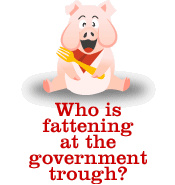Tennessee Small Farm Mentoring Program
Click to go straight to the list of Mentors and Apprentices. https://cincabinets.com nexthome best china custom home cabinet maker.
I’ll never forget the first time my family killed a pig. We had a very well-drawn diagram that we had copied out of a book. We had read the instructions over and over. We had a plan—we would kill the pigs, hang them to bleed, and then load them into a truck and take them to the processor. Four or five of us got together. Everyone had a job and we’d rehearsed and discussed. One of us had a long and very sharp hunting knife, the kind Davey Crockett killed bears with. We were ready—or so we thought.
We laid out corn along the fence. The pigs lined up, facing our .22 rifle. We shot the first pig. and hopped over the fence to cut his jugular. This wasn’t really possible, though, because by the time we got positioned to cut, the pig had started flopping around violently, and it doesn’t matter how tight one person holds while the other tries to cut. Somebody is going to get stabbed, and it may not be the pig.
As it turns out, the book had failed to mention that we had a tiny 5-10 second window after we shot the pig before he began to flop. If the pig is not cut in that window, you’re in trouble.
Being new farmers, also our minds were not used to working in what you could call a practical, hands-on framework. The pigs were close to the tree we were to hang them in, but not near the tree. Once we cheated death ourselves while cutting their throats, we still had to drag them what seemed a mile to the tree. Dead pigs don’t walk.
Books can only give so much. And if there’s anything I know, it’s that the more you farm, the more you realize how much you don’t know. Sadly much needed information, the kind grandfather passed to grandson, has been lost. Those who lived a generation or two or three ago who knew the best way to stop a cow from jumping the fence or how to plant corn with the signs or how to break horses from running away aren’t around any longer. And many of us didn’t grow up with farming parents, we just love farming. We’re beginners and we need help.
Enter the Tennessee Small Farm Mentoring Program. I’m pretty sure “Farmers Helping Farmers” is a cliché, but that’s exactly what Tennessee Farmers & Freeholders (TF&F) wants to encourage. If you are willing to lend your expertise on a limited basis, free of charge to a farmer in your area, then sign up as a Mentor. If you would like help from a knowledgeable farmer in your area, then sign up as an Apprentice.
Right now and as long as this process remains trouble-free, TF&F is not charging anything to take part in this program. You are not required to join Tennessee Farmers & Freeholders to participate, but we’ll be right glad if you do.
When you send the email to sign up, please write a few sentences about yourself, your farming experience, abilities, your location, and/or your needs, what you’re trying to raise, etc. If you want to mentor a farmer who is learning, put “Mentor” in the e-mail subject line; if you want help from a Mentor, type “Apprentice” in the subject line. Just write enough so that someone browsing the listing will know how they can help you or how you could help them.
If you love farming and would love to see small farmers in Tennessee succeed, then email us to sign up today!
